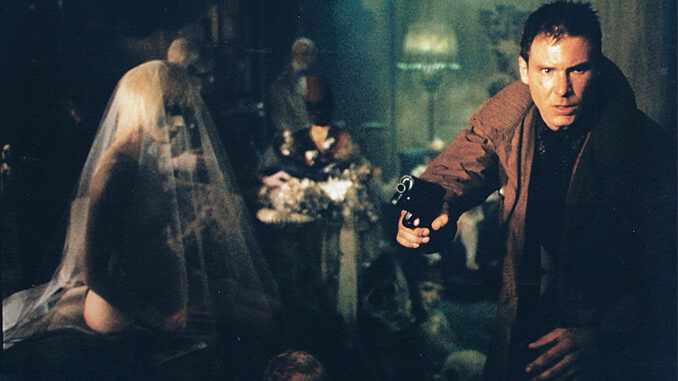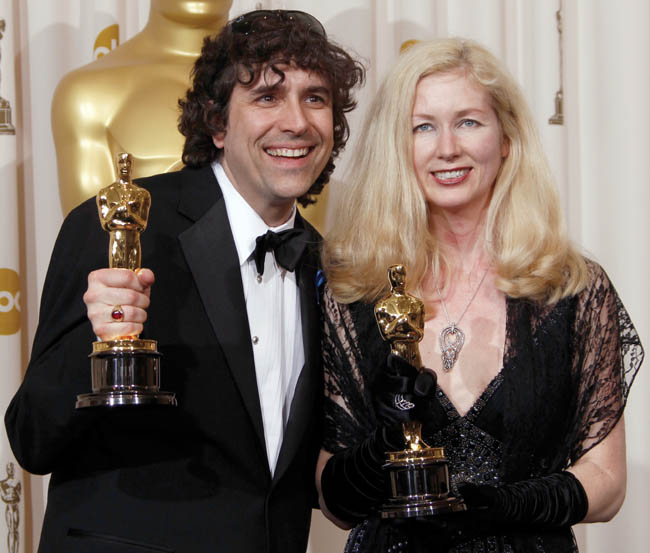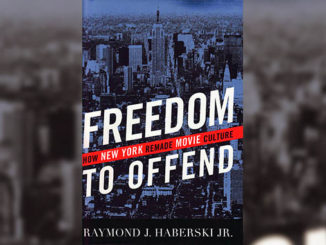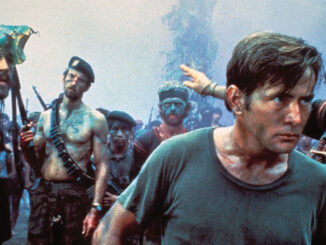
by Evan Finn
I was quite late to the game in discovering my love of cinema. I grew up on a steady diet of Tom and Jerry, old sci-fi shows and MTV videos. While I obviously enjoyed movies, I never seriously considered making a career out of it until much later. My father had a PhD in Physics, and I had always assumed that my path would be similar.
Being the academic type, my dad would often commandeer our single tele- vision to watch a movie that I would inevitably decide was boring, arcane or simply not worth my time. One of these was Ridley Scott’s Blade Runner: Director’s Cut. For the uninitiated, Blade Runner is the story of Rick Deckard, a cop of the future drawn out of retirement to hunt down “replicants”––human android clones used for slave labor off-world, but illegal on Earth. In a bleak vision of Los Angeles 2019, Deckard must hunt down and kill replicants who have illegally made their way back to our planet. It was sci-fi and it looked flashy and exciting. While I thought the flying cars were cool, I found the rest of it pretty damn boring, so I returned to my room to play some video games.
Unfazed, my dad yammered on and on about Blade Runner, and encouraged me to give the film another look. He often talked about certain films which he felt were “important.” I tended to tune out his rants.
It really wasn’t until I began college that I finally caved in to his pressure and watched Blade Runner again. Whatever had happened in the meantime (maturity, education, willingness to listen to Dad), it was a light-bulb moment. I watched it again and again. I read about it in books. From that point on, movies and television weren’t just an excuse to watch explosions, car chases and sexy women. They could be sophisticated stories, where each shot and each line had a meaning and a reason to exist within the narrative. I started branching out into genres that I wouldn’t have dreamed of wasting my time with previously, and repeatedly surprised myself with how much I enjoyed each new movie.
I was majoring in chemistry, working in a laboratory, and my professor seemed to understand something I hadn’t really considered up to that point: “Evan, I think you ought to go to film school.”
I believe Blade Runner is a fascinating film for many reasons: sophisticated and dark storyline, minimalist dialogue, superb effects and amazing cinematography. From an editorial point of view, it’s especially interesting because of the fairly unusual situation that there are multiple versions widely available to watch. In the original theatrical version (1982), which I watched only after viewing the Director’s Cut, Deckard is merely an ordinary human charged with killing replicants. By the end of the movie, he has fallen in love with Rachael, a replicant he was sup- posed to kill. We watch as together they happily fly into the sunset, away from the dank, dismal environment of future LA.
While the Director’s Cut (1992) looked mostly the same, the few edits made to this cut changed the film profoundly. Gone was Deckard’s voiceover throughout the movie. Gone was the happy ending shot. And added to one scene was a shot of a unicorn, appearing in a dream of Deckard’s. This added shot proved to be critically important in suggesting that Deckard himself was a replicant, and raised questions about the nature of the characters. How was Deckard, who did not know he was a replicant, any different than the humans for whom he worked? How were the replicants that he hunted––who were human in every way except for their four-year lifespan––any different than Deckard? The film went from an interesting, fairly standard sci-fi chase movie to a sophisticated inquiry of identity, of what makes humans human.
The movie was, and still is, a revelation to me. It was the first film to illustrate to me that movies can be complex, meaningful works of art that should be interpreted, not just passively watched. My dad was right; the film is “important.”
My dad was the best father one could ever hope for: kind, supportive, and loving. But my decision to attend film school was initially met with confusion. I think, like me, he assumed I would follow in his footsteps into some field of science. He later relented. My joy in pursuing this career path was reason enough for him to be pleased with my choice. Of course, I now believe that he was instrumental in guiding me towards cinema in the first place. For that, I will be eternally grateful.





